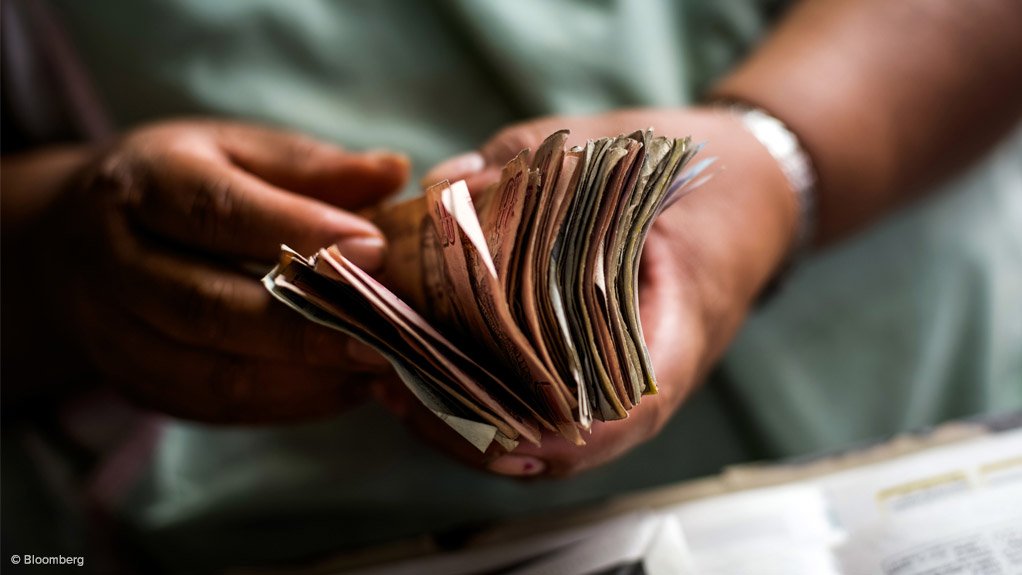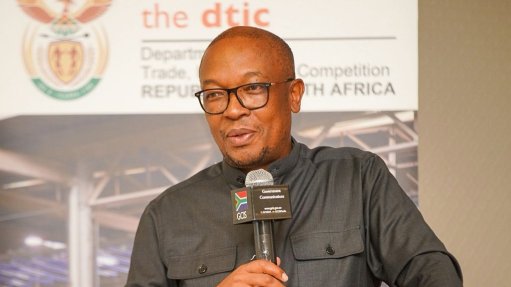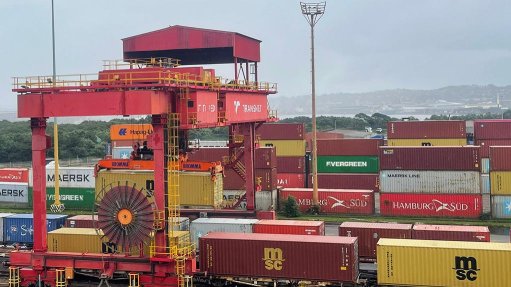Unctad outlines reforms to avoid impending global public debt crisis
Global body UN Trade and Development (Unctad) has urged action to deal with the alarming surge of global debt and proposed reforms to international finance systems to safeguard “a prosperous future for people and planet”.
A report published by Unctad on June 4 shows that global public debt hit a record $97-trillion in 2023, up by $5.6-trillion from 2022.
The report, titled ‘A world of debt: a growing burden to global prosperity’, highlights the unprecedented surge in public debt – comprising both domestic and external general government borrowing.
Unctad tracks public debt and development spending in 188 countries and says urgent reforms could help avert a widespread debt crisis, particularly in developing countries.
In the wake of the Covid-19 pandemic, developing countries’ external sovereign debt – funds borrowed in foreign currency – increased by 15.7% to $11.4-trillion by the end of 2022. The mounting debt levels are further complicated by the diversity of lenders and financial instruments.
Equally alarming is the surge in debt servicing costs. Low-income and lower-middle-income countries that borrowed when interest rates were low and investors keen are now spending about 23% and 13% of their export revenues, respectively, to repay their external debt.
“To put this in perspective, after World War II, the share of export revenue going into debt servicing for Germany was capped at 5% to aid West Germany’s recovery,” explains Unctad macroeconomic policies branch head Anastasia Nesvetailova.
She adds that the rising debt costs are draining vital public resources needed for development.
About 3.3-billion people – almost half of humanity – now live in countries that spend more money paying interest on their debts than on education or health.
“This situation is clearly unsustainable. While a systemic debt crisis, in which a growing number of developing countries move from distress to default, looms on the horizon, a development crisis is already underway.”
Nesvetailova underscores that the mounting debt crisis stems not only from the wave of debt after the global financial crisis of 2008, but also the cascading crises since the pandemic and the aggressive monetary tightening in developed countries.
She points out that the main roots lie in the structural flaws of the global sovereign debt architecture, “which offers inadequate and delayed support to countries in debt distress”.
According to Unctad, a development-centred approach to debt is needed which focuses on the overlooked factors contributing to unsustainable sovereign debt, such as climate change.
The United Nations body advocates for a thorough re-evaluation of these factors, which encompass demographics, public health, global economic shifts, rising interest rates, geopolitical realignments, political instability, as well as the implications of sovereign debt on industrial policies in debtor States.
It proposes a five-stage life cycle for sovereign debt as a conceptual framework to analyse and improve the global debt architecture. The stages include incurring debt, issuing debt instruments, such as bonds and loans, managing debt, tracking debt sustainability and, if necessary, restructuring or renegotiating the terms of debt.
“We’re urging new creative thinking in all stages of the debt cycle, as well as new approaches to bridge the persistent divide between statutory and contractual solutions,” says Unctad debt and development finance branch head Penelope Hawkins.
A key recommendation is to boost concessional loans – characterised by lower interest rates and longer repayment terms – and grants. This could be done by increasing the base capital of multilateral and regional banks to expand their lending capacity.
Another way to raise concessional finance involves issuing special drawing rights, which is a type of international currency the International Monetary Fund created for member countries to boost their monetary reserves by exchanging them for official currencies as needed.
Also important is more transparency in financing terms and conditions. Unctad says that reducing resource and information asymmetry between borrowers and lenders, coupled with legislative measures in lender countries, can discourage predatory lending practices.
“Transparency goes beyond data disclosure. It signifies a commitment to constructing a global financial architecture that is fair and accountable to all,” Hawkins points out.
Further recommendations include expanding developing countries’ access to foreign currencies through central bank swaps and enhancing their resilience during external crises through standstill rules on debtors’ obligations, such as climate-resilient debt clauses.
This would allow a halt in debt repayments, providing some breathing space for crisis management.
“Greater use of contingent clauses in contracts is necessary for countries experiencing climate and other external shocks,” Hawkins states.
Unctad says the global debt architecture requires well-developed rules for automatic restructurings and a better global financial safety net. It also underscores the urgent need to begin work on establishing a global debt authority to coordinate and guide sovereign debt restructurings.
“The time to act is now. The costs of inaction are too high,” Hawkins concludes.
Article Enquiry
Email Article
Save Article
Feedback
To advertise email advertising@creamermedia.co.za or click here
Press Office
Announcements
What's On
Subscribe to improve your user experience...
Option 1 (equivalent of R125 a month):
Receive a weekly copy of Creamer Media's Engineering News & Mining Weekly magazine
(print copy for those in South Africa and e-magazine for those outside of South Africa)
Receive daily email newsletters
Access to full search results
Access archive of magazine back copies
Access to Projects in Progress
Access to ONE Research Report of your choice in PDF format
Option 2 (equivalent of R375 a month):
All benefits from Option 1
PLUS
Access to Creamer Media's Research Channel Africa for ALL Research Reports, in PDF format, on various industrial and mining sectors
including Electricity; Water; Energy Transition; Hydrogen; Roads, Rail and Ports; Coal; Gold; Platinum; Battery Metals; etc.
Already a subscriber?
Forgotten your password?
Receive weekly copy of Creamer Media's Engineering News & Mining Weekly magazine (print copy for those in South Africa and e-magazine for those outside of South Africa)
➕
Recieve daily email newsletters
➕
Access to full search results
➕
Access archive of magazine back copies
➕
Access to Projects in Progress
➕
Access to ONE Research Report of your choice in PDF format
RESEARCH CHANNEL AFRICA
R4500 (equivalent of R375 a month)
SUBSCRIBEAll benefits from Option 1
➕
Access to Creamer Media's Research Channel Africa for ALL Research Reports on various industrial and mining sectors, in PDF format, including on:
Electricity
➕
Water
➕
Energy Transition
➕
Hydrogen
➕
Roads, Rail and Ports
➕
Coal
➕
Gold
➕
Platinum
➕
Battery Metals
➕
etc.
Receive all benefits from Option 1 or Option 2 delivered to numerous people at your company
➕
Multiple User names and Passwords for simultaneous log-ins
➕
Intranet integration access to all in your organisation




















